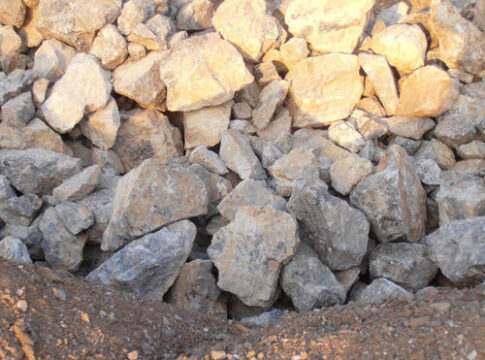Egypt has made a significant mark on the global mineral resources map by securing the ninth spot worldwide in phosphate reserves. According to the Ministry of Petroleum and Mineral Resources, the country’s reserves are estimated at a substantial 1.3 billion tons, highlighting Egypt’s critical role in the global phosphate market.
The Abu Tartur Plateau, located in Egypt’s Western Desert, stands as one of the region’s most prominent phosphate deposits, known for its relatively high-quality phosphate. This area alone represents a significant portion of Egypt’s mineral wealth. Along the Red Sea coast, additional significant reserves are located in Safaga, Quseir, and Hamrawein, contributing notably to the national output. Meanwhile, the Eastern Desert, though hosting smaller reserves, remains an important player in Egypt’s phosphate production landscape.
Dr. Mohamed Salah, a mineral resources expert at Cairo University, commented, “Egypt’s rich phosphate reserves are not only a national asset but also hold immense potential for boosting the country’s economy through increased exports and job creation.”
Globally, phosphate is critical for agriculture, being a key component in fertilizers. The global phosphate market is projected to reach over $78 billion by 2027, according to a report by Market Research Future, indicating a compound annual growth rate of approximately 2.8% from 2020. This growth is driven by increasing demand for food production and the subsequent need for fertilizer, positioning Egypt advantageously for future economic gains.
Efforts are underway to enhance the efficiency of phosphate mining and processing in Egypt. The government is investing in infrastructure and technology to increase production capacity and improve the quality of exports. In recent developments, an agreement with a leading international corporation aims to introduce cutting-edge technology to the Abu Tartur region, enhancing extraction processes and boosting output.
Furthermore, Egypt’s strategic geographical location provides an added advantage for exporting phosphate to various international markets, including Asia, Europe, and the Americas. As the global demand for fertilizers continues to rise, Egypt’s position in the phosphate market is likely to become even more pivotal.
The Ministry of Petroleum and Mineral Resources has emphasized the importance of sustainable mining practices to ensure long-term environmental protection while maximizing economic benefits. With initiatives aimed at promoting research and development in mineral extraction technology, Egypt is poised to not only maintain but potentially improve its standing in the global phosphate industry.
As the nation leverages its mineral wealth, the focus remains on balancing economic growth with environmental stewardship, ensuring that Egypt’s phosphate reserves continue to support both the national economy and global agricultural needs.


